STUFF- Books
Pollinator Partnership books are free, but we do ask for the cost of shipping and handling. Please order below.
BOOKS ARE FOR EDUCATIONAL PURPOSES ONLY AND ARE NOT INTENDED FOR RESALE. BOOKS MAY NOT BE SOLD, REPRODUCED OR DISTRIBUTED WITHOUT THE EXPRESS WRITTEN CONSENT OF POLLINATOR PARTNERSHIP.
"Bee Basics- An Introduction to Our Native Bees" By Beatriz Moisset, Ph.D and Stephen Buchmann, Ph.D.
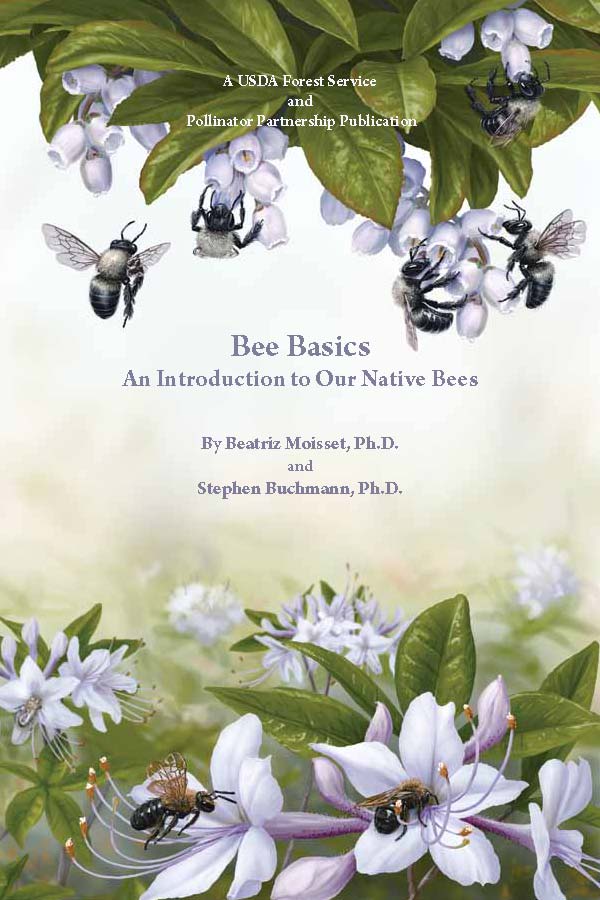 |
Download to view and/or print by clicking here for the PDF version. |
"Bumble Bees of the Eastern United States" by Sheila Colla, Leif Richardson and Paul Williams
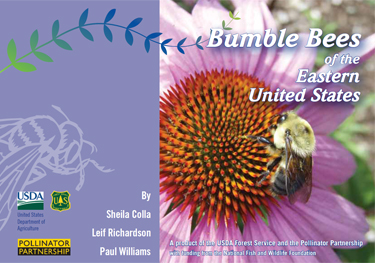 |
|
Bumble Bees of the Eastern United States: Now, for the very first time, there's a guide to all 21 species of bumbles bees occurring east of the 100th Meridian in the United States. Detailed color photos of bumble bees on their favorite blossoms are presented, along with detailed dot distribution maps for where they occur. Additional facial photos, crucial for identification, are illustrated. Information on the natural history of each species is discussed including common food plants and life history information. Some of these species are "cuckoo bees" social parasites in the nests of others and these species are also included. A unique dichotomous key to the species (males and females) is an indispensable part of the guide. The 103 page extensive guide was co-authored by Drs. Sheila Colla, Leif Richardson and UK expert Paul Williams. A Foreword is given by Dr. Stephen Buchmann of the Pollinator Partnership. |
|
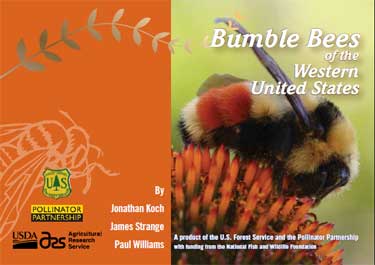 |
Choose from the quantities below to order a copy of the book: |
 |
Order a copy of Measuring Results for a suggested donation of $15. |
The Coevolution Institute (CoE), now the Pollinator Partnership, set out to explore the theories that guide effective behavior change interventions and program evaluation. Specifically, CoE asked, “What can we learn from behavior change interventions and outcome measurement through a cross-field survey of published literature?” Measuring Results examines the ways those who work within and outside of environmental education have approached the challenges of effecting and measuring individual behavior change. Measuring Results offers program providers, grantors, and other stakeholders a common terminology and background information on how different fields have approached behavior change interventions and assessment. Effective behavior change practices include targeting actions, tailoring interventions to the audience, building self-efficacy, and using prompts or tools to trigger action. Evaluation is fundamental to our success on multiple levels, including program and organizational development. A variety of methods, including specific evaluation frameworks and qualitative and quantitative research techniques, guide evaluation work. Dissemination (or communication) of results is crucial to achieving greater knowledge. It is the responsibility of program providers to share with others what is working, but just as important what is not working, within an organization. Collaboration and information exchange among organizations is an important step in learning what is effective and in promoting valid and useful evaluations. Research for Measuring Results took place through a review of the academic literature in the fields of environmental education and museum research and, to a lesser extent, in health and social marketing research. |
|
| Pollinator Book Store We are excited to share with you selected books that feature pollinators. Browse through our suggested books for adults and children in our book store by clicking here. Check out our top picks! Click to get yours now. |
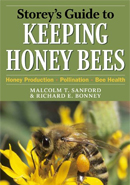 |
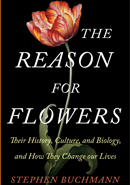 |
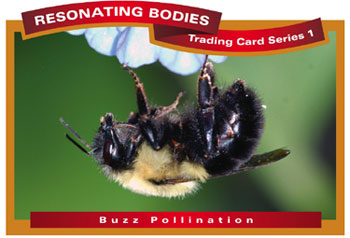 |
This set of 24 cards explores the lives of native bees through “superpowers”, “lifestyles”, “copycats” and “meet the bees” series. Featuring macro photography and color-coded DNA barcode snippets, they're popular with all ages. Solitary and social bee physiology, nest building, and interactions with plants, animals and habitat are presented in an open-ended structure to promote creative approaches to sharing, teaching and exploring information about pollinators and their habitats. Decks of cards are provided for a suggested donation to cover shipping and handling. |